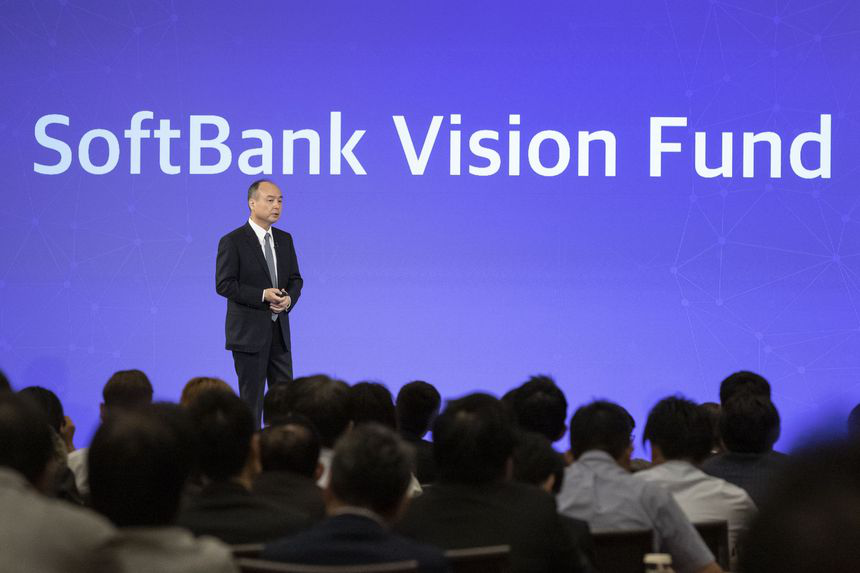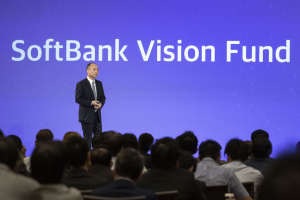Join Our Telegram channel to stay up to date on breaking news coverage
As the global funding winter continues, Japanese investment firm SoftBank has reported a record loss of $32 billion in its Vision Fund for the fiscal year that ended in March 2023.
However, despite the losses, the firm is eager to support businesses adopting AI.
An Unstable Economy
SoftBank Group Corporation, the investment firm that has backed Delhivery, Paytm, and Ola, invested about $3.14 billion across its two main funding vehicles in the fiscal year 2022-2023, a significant decrease from the $44.26 billion invested in the previous year.
Consequently, the Japanese investment holding company also revealed a record loss of $32 billion (4.3 trillion Japanese yen) across SoftBank Vision Fund I and SoftBank Vision Fund II, compared to the preceding year’s loss of 2.52 trillion Japanese yen.
SoftBank reported a 5.28 trillion yen loss on investments in its Vision Funds, up from 3.43 trillion yen the previous year.
This historic loss for its Vision Fund came at a time when the recent rally in tech stocks has done little to ease another difficult year for its flagship investment unit.
This has been the largest loss since founder Masayoshi Son started his first Saudi and Abu Dhabi-backed fund in 2017.
As reported by CNBC, Yoshimitsu Goto, CFO and CISO at SoftBank Group Corp, stated that it has been an unstable year typified by geopolitical dangers and financial system instability, citing the failure of Silicon Valley Bank and problems at Credit Suisse as examples.
According to Victor Galliano, an independent analyst who publishes on Smartkarma, many of the privately held businesses that SoftBank has invested in are yet to become profitable, while the initial public offering (IPO) market is still weak.
The key challenges for SoftBank; the Alibaba valuation “cushion” has been largely consumed, the group has big exposure to WeWork and the spectre of more private company valuation write-downs is real https://t.co/c3spyzBu6r
— Victor A Galliano (@galliano_victor) May 12, 2023
He noted that he remained concerned about the rest of the year and the possibility that private enterprises could continue to lower valuations.
Selling Off Investments to Balance the Books
According to the billionaire Son, the company will continue to operate in defense mode until the financial markets stabilize.
However, to improve its balance sheet and reassure uneasy investors, SoftBank is selling several of its businesses.
At the same time, the company is promoting Arm Ltd’s much-anticipated initial public offering (IPO).
The Japanese conglomerate recently announced that it would be selling its early-stage venture funding arm, SoftBank Ventures Asia Corp., to a company run by Taizo Son, Son’s younger brother.
The agreement’s terms weren’t made public.
Additionally, it reduced its losses by selling its T-Mobile and Alibaba stock. The company continues to sell part of its shares in Alibaba through a derivative called a forward contract after Son made his fortune with an early investment in Alibaba more than 20 years ago.
Investors are now looking toward SoftBank’s British semiconductor company Arm’s IPO to strengthen the Japanese company’s balance sheet and provide it with additional funding to make new acquisitions.
SoftBank bought chip giant Arm for $32 billion in 2016. Yoshimitsu Goto stated that he could not speak in detail about Arm owing to the confidential filing in the U.S., but added that things are going smoothly in terms of preparation for the IPO.
Arm reported fiscal year revenues of 381.7 billion yen, an increase of more than 27% from the previous year. Pre-tax earnings for the corporation increased by 18% yearly to 48.6 billion yen.
For Arm’s offering, bankers have proposed valuations ranging from $30 billion to $70 billion. This large range reflects the difficulties in valuing the company against erratic semiconductor share prices.
To this end, Softbank may consider selling its startup incubator to reduce its financial burden.
They may also sell Alibaba shares in response to the company’s plan to split into six units. This could potentially increase its income from divestment.
Related News
- Cybersecurity: Genesis Hacker Marketplace Is Still Functional Despite Police Recent Raid
- Arbitrum Uncovers New Reward Program In A Bid To Revive The Ailing ARB
- China Establishes a National Blockchain Center to Train Half a Million Experts
Join Our Telegram channel to stay up to date on breaking news coverage


